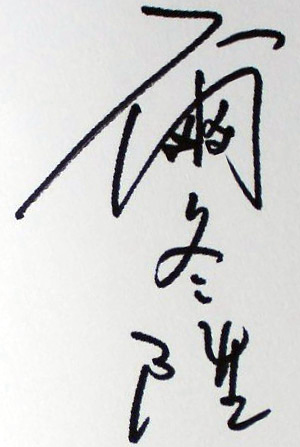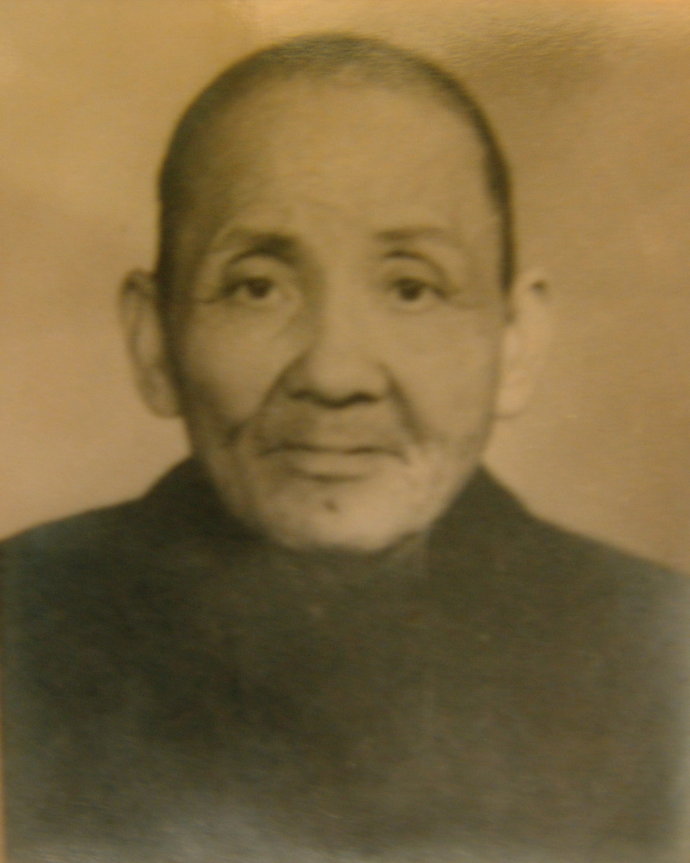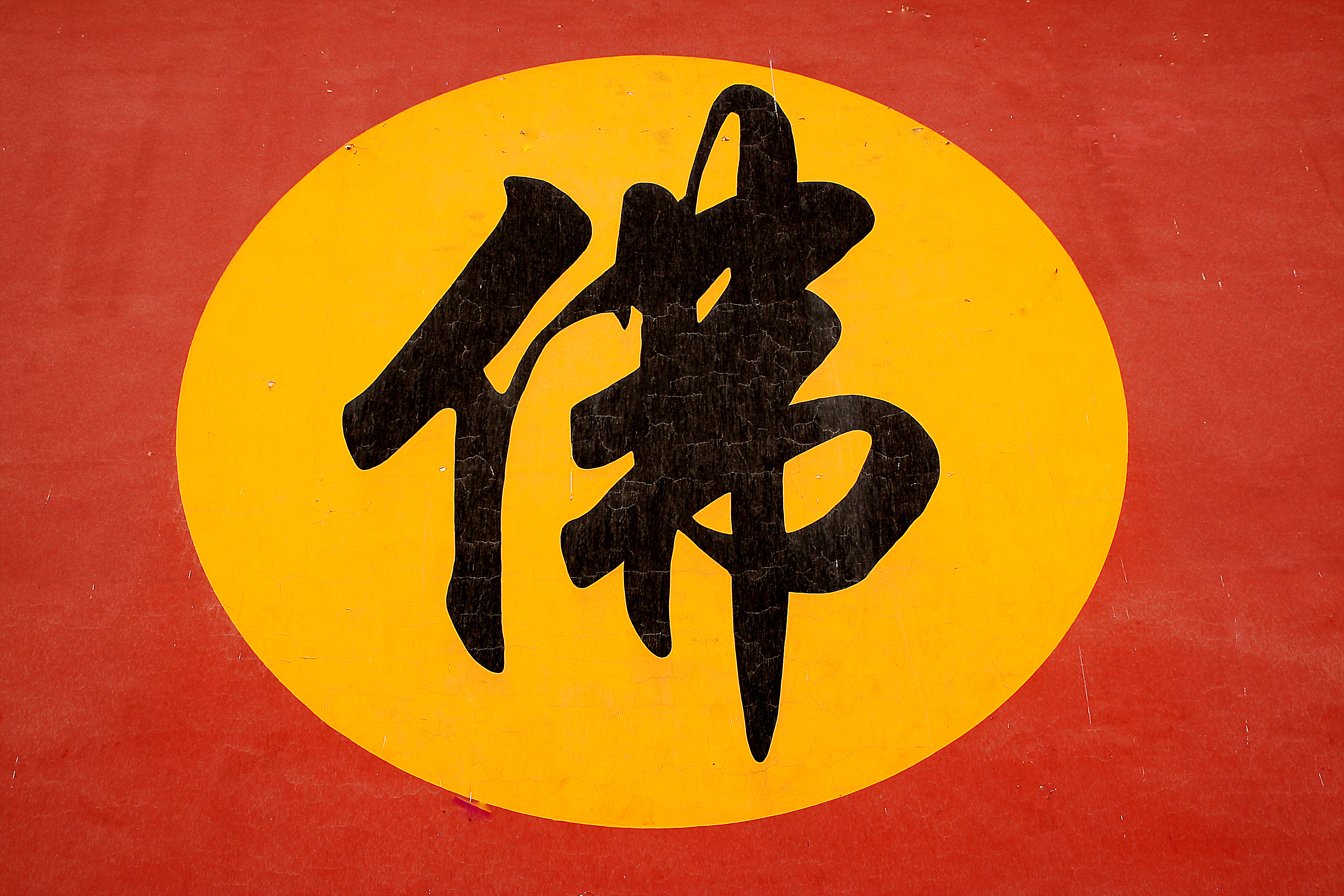|
Master Of Zen
''Master of Zen'' also known as ''Bodhidharma'' is a 1994 Hong Kong film based on the legends surrounding the life of Bodhidharma. The film was directed, produced, and co-written by Brandy Yuen, and starred Derek Yee and Louis Fan in the leading roles. Plot Bodhidharma was born in India sometime in the fifth or sixth century as the third son of a king. When his father died, he leaves home and practises Buddhism under the tutelage of the master Prajnatara. Many decades later, he travels to China to spread Zen Buddhism and search for a successor. In China, Bodhidharma meets Emperor Wu of the Liang dynasty and tells him he has not accumulated any merit even though the emperor has made many financial contributions to the Buddhist community. The emperor is displeased by Bodhidharma's comment. The locals are also not very friendly towards Bodhidharma, but he surprises them on one occasion when he saves a girl from drowning, and crosses a river by using '' qinggong'' and with the ai ... [...More Info...] [...Related Items...] OR: [Wikipedia] [Google] [Baidu] |
Derek Yee
Derek Yee Tung-sing () is a film producer, director and a former Shaw Brothers actor from Hong Kong. Early life Yee was born Yee Tung-sing in Hong Kong on 28 December 1957, the son of Yee Kwong (爾光), a film producer from Tientsin (Tianjin), and Hung Wei (紅薇), an actress of half Manchu, half Mongol ethnicity. Yee's elder half-brothers Paul Chun and David Chiang as well as his elder half-sister Yim Wai were also actors. Career In 1977, Yee became an actor for Shaw Brothers Studio in Hong Kong. Yee has starred in over 40 movies in Hong Kong. This was between 1975 and 1986, during the time when Shaw Brothers Studio were still producing movies. Yee became a screenwriter and film director. Yee is known for the 2004 film ''One Nite in Mongkok'', which won multiple awards. Yee's other notable films include ''C'est la vie, mon chéri'', ''Viva Erotica'' and ''The Truth About Jane and Sam'' and ''Protégé''. In 2017, Yee became the chairman of Hong Kong Film Awards Associati ... [...More Info...] [...Related Items...] OR: [Wikipedia] [Google] [Baidu] |
Wu Ma
Fung Wang-yuen (22 September 1942 – 4 February 2014), better known by his stage name Wu Ma, was a Hong Kong actor, director, producer and writer. Wu Ma made his screen debut in 1963, and with over 240 appearances to his name (plus 49 directorial credits within a fifty-year period), he was one of the most familiar faces in the history of Hong Kong Cinema and is best known as the Taoist ghosthunter in ''A Chinese Ghost Story''. Early years Born Feng Hongyuan in Tianjin, Republic of China. At 16 he moved to Guangzhou and became a machinist before migrating to Hong Kong in 1960. In 1962, Feng enrolled in the Shaw Brothers acting course. Graduating a year later, he became a contract player for the studio and made his first appearance in ''Lady General Hua Mu-lan''. He then appeared in such films as ''Temple of the Red Lotus'' (1965), ''The Knight of Knights'' (1966) and ''Trail of the Broken Blade'' (1967). He took on the stage name 'Wu Ma' as it reflected the animal in the year of h ... [...More Info...] [...Related Items...] OR: [Wikipedia] [Google] [Baidu] |
Films About Buddhism
A film also called a movie, motion picture, moving picture, picture, photoplay or (slang) flick is a work of visual art that simulates experiences and otherwise communicates ideas, stories, perceptions, feelings, beauty, or atmosphere through the use of moving images. These images are generally accompanied by sound and, more rarely, other sensory stimulations. The word "cinema", short for cinematography, is often used to refer to filmmaking and the film industry, and to the art form that is the result of it. Recording and transmission of film The moving images of a film are created by photographing actual scenes with a motion-picture camera, by photographing drawings or miniature models using traditional animation techniques, by means of CGI and computer animation, or by a combination of some or all of these techniques, and other visual effects. Before the introduction of digital production, series of still images were recorded on a strip of chemically sensitize ... [...More Info...] [...Related Items...] OR: [Wikipedia] [Google] [Baidu] |
1990s Cantonese-language Films
Year 199 ( CXCIX) was a common year starting on Monday (link will display the full calendar) of the Julian calendar. At the time, it was sometimes known as year 952 ''Ab urbe condita''. The denomination 199 for this year has been used since the early medieval period, when the Anno Domini calendar era became the prevalent method in Europe for naming years. Events By place Roman Empire * Mesopotamia is partitioned into two Roman provinces divided by the Euphrates, Mesopotamia and Osroene. * Emperor Septimius Severus lays siege to the city-state Hatra in Central-Mesopotamia, but fails to capture the city despite breaching the walls. * Two new legions, I Parthica and III Parthica, are formed as a permanent garrison. China * Battle of Yijing: Chinese warlord Yuan Shao defeats Gongsun Zan. Korea * Geodeung succeeds Suro of Geumgwan Gaya, as king of the Korean kingdom of Gaya (traditional date). By topic Religion * Pope Zephyrinus succeeds Pope Victor I, as th ... [...More Info...] [...Related Items...] OR: [Wikipedia] [Google] [Baidu] |
Kung Fu Films
Kung fu film () is a subgenre of martial arts films and Hong Kong action cinema set in the contemporary period and featuring realistic martial arts. It lacks the fantasy elements seen in ''wuxia'', a related martial arts genre that uses historical settings based on ancient China. Swordplay is also less common in kung-fu films than in ''wuxia'' and fighting is done through unarmed combat. Kung fu films are an important product of Hong Kong cinema and the West, where it was exported. Studios in Hong Kong produce both wuxia and kung fu films. History The kung fu genre was born in Hong Kong as a backlash against the supernatural tropes of wuxia. The wuxia of the period, called ''shenguai wuxia'', combined '' shenguai'' fantasy with the martial arts of wuxia. Producers of wuxia depended on special effects to draw in larger audiences like the use of animation in fight scenes. The popularity of shenguai wuxia waned because of its cheap effects and fantasy cliches, paving way for the ris ... [...More Info...] [...Related Items...] OR: [Wikipedia] [Google] [Baidu] |
Hong Kong Fantasy Films
Hong may refer to: Places *Høng, a town in Denmark *Hong Kong, a city and a special administrative region in China *Hong, Nigeria *Hong River in China and Vietnam *Lake Hong in China Surnames *Hong (Chinese name) *Hong (Korean name) Organizations *Hong (business), general term for a 19th–20th century trading company based in Hong Kong, Macau or Canton *Hongmen (洪門), a Chinese fraternal organization Creatures *Hamsa (bird), a mythical bird also known was hong *Hong (rainbow-dragon) ''Hong'' or ''jiang'' () is a two-headed dragon in Chinese mythology, comparable with rainbow serpent legends in various cultures and mythologies. Chinese "rainbow" names Chinese has three "rainbow" words, regular ''hong'' , literary ''didong'' , ..., a two-headed dragon in Chinese mythology * ''Hong'' (genus), a genus of ladybird {{disambiguation ... [...More Info...] [...Related Items...] OR: [Wikipedia] [Google] [Baidu] |
1994 Films
File:1994 Events Collage.png, From left, clockwise: The 1994 Winter Olympics are held in Lillehammer, Norway; The Kaiser Permanente building after the 1994 Northridge earthquake; A model of the MS Estonia, which sank in the Baltic Sea; Nelson Mandela casts his vote in the 1994 South African general election, in which he was elected South Africa's first president, and which effectively brought Apartheid to an end; NAFTA, which was signed in 1992, comes into effect in Canada, the United States, and Mexico; The first passenger rail service to utilize the newly-opened Channel tunnel; The 1994 FIFA World Cup is held in the United States; Skulls from the Rwandan genocide, in which over half a million Tutsi people were massacred by Hutus., 300x300px, thumb rect 0 0 200 200 1994 Winter Olympics rect 200 0 400 200 Northridge earthquake rect 400 0 600 200 Sinking of the MS Estonia rect 0 200 300 400 Rwandan genocide rect 300 200 600 400 Nelson Mandela rect 0 400 200 600 1994 FIFA ... [...More Info...] [...Related Items...] OR: [Wikipedia] [Google] [Baidu] |
Chen Sing
Chen may refer to: People *Chen (surname) (陳 / 陈), a common Chinese surname * Chen (singer) (born 1992), member of the South Korean-Chinese boy band EXO * Chen Chen (born 1989), Chinese-American poet * (), a Hebrew first name or surname: **Hen Lippin (born 1965), former Israeli basketball player **Chen Reiss (born 1979), Israeli operatic soprano **Ronen Chen (born 1965), Israeli fashion designer Historical states * Chen (state) (c. 1045 BC–479 BC), a Zhou dynasty state in present-day Anhui and Henan *Chen (Thessaly), a city-state in ancient Thessaly, Greece *Chen Commandery, a commandery in China from Han dynasty to Sui dynasty * Chen dynasty (557–589), a Chinese southern dynasty during the Northern and Southern dynasties period Businesses and organizations * Council for Higher Education in Newark (CHEN) * Chen ( he, ח״ן), acronym in Hebrew for the Women's Army Corps (, ) a defunct organization in the Israeli Defence Force * Chen, a brand name used by Mexican ... [...More Info...] [...Related Items...] OR: [Wikipedia] [Google] [Baidu] |
Chinese Chán
Chan (; of ), from Sanskrit '' dhyāna'' (meaning "meditation" or "meditative state"), is a Chinese school of Mahāyāna Buddhism. It developed in China from the 6th century CE onwards, becoming especially popular during the Tang and Song dynasties. Chan is the originating tradition of Zen Buddhism (the Japanese pronunciation of the same character, which is the most commonly used English name for the school). Chan Buddhism spread from China south to Vietnam as Thiền and north to Korea as Seon, and, in the 13th century, east to Japan as Japanese Zen. History The historical records required for a complete, accurate account of early Chan history no longer exist. Periodisation The history of Chan in China can be divided into several periods. Zen, as we know it today, is the result of a long history, with many changes and contingent factors. Each period had different types of Zen, some of which remained influential while others vanished. Ferguson distinguishes three ... [...More Info...] [...Related Items...] OR: [Wikipedia] [Google] [Baidu] |
Wuxia
( ), which literally means "martial heroes", is a genre of Chinese fiction concerning the adventures of martial artists in ancient China. Although is traditionally a form of historical fiction, its popularity has caused it to be adapted for such diverse art forms as Chinese opera, manhua, television dramas, films, and video games. It forms part of popular culture in many Chinese-speaking communities around the world. The word "" is a compound composed of the elements (, literally "martial", "military", or "armed") and (, literally "chivalrous", "vigilante" or "hero"). A martial artist who follows the code of is often referred to as a (, literally "follower of ") or (, literally "wandering "). In some translations, the martial artist is referred to as a "swordsman" or "swordswoman" even though they may not necessarily wield a sword. The heroes in wuxia fiction typically do not serve a lord, wield military power, or belong to the aristocratic class. They often originat ... [...More Info...] [...Related Items...] OR: [Wikipedia] [Google] [Baidu] |
Austin Wai
Austin Wai Tin-chi (13 August 1957 – 4 October 2012) was a Hong Kong actor and choreographer. He was the elder brother of actress Kara Wai. He had notable roles in the martial arts films like ''The 36th Chamber of Shaolin'', '' 5 Superfighters'', '' The Avenging Eagle'' and ''Flash Point''. Filmography Film *''Pi li quan'' (1972) - Young Tien Wa *''Si da men pai'' (1977) *''Yin yang xie di zi'' (1977) *''Huang fei hong si da di zi'' (1977) *''Gong fu xiao zi'' (1977) *''The 36th Chamber of Shaolin'' (1978) - Shaolin disciple *''Nan yang tang ren jie'' (1978) *''Shi zi mo hou shou'' (1978) *'' The Avenging Eagle'' (1978) - Cao Gao-shing *''Qian Long xia Yangzhou'' (1978) *''Yi tian tu long ji da jie ju'' (1978) *''Xing mu zi gu huo zhao'' (1979) *''Yuan yue wan dao'' (1979) - Knight *''Da chu tou'' (1979) *''The Deadly Breaking Sword'' (1979) *''Lao shu la gui'' (1979) *''Xin tie cuo men shen'' (1979) *'' 5 Superfighters'' (1979) - Wang Fu-chung *''Qi sha'' (1979) *''Cha chi ... [...More Info...] [...Related Items...] OR: [Wikipedia] [Google] [Baidu] |
Eddy Ko
Eddy Ko Hung (; born Ho Yiu-sum ; 1947) is a Hong Kong television and film actor who has worked on the TV stations RTV, ATV (both now defunct), and TVB. Most recently, he has made appearances in several international films including 2015's ''The Martian''. Background Ko was born Ho Yiu-sum in Zhongshan in 1947. He started his career in 1968 at the Shaw Brothers Studio and adopted the name Ko Hung as a stage name. Ko joined TVB later and has since acted in many TV drama series. In 1990, Ko joined TVB's rival ATV and worked there until 1995. In 2000, Ko rejoined TVB and continued acting in many TVB-produced drama series. He is also sometimes also credited as Ko Hung, Gao Xiong, Eddie Ko, Edward Ko, and Lin Sheng (). Within the Chinese community, Ko's most remembered performance was in the 1995 version of the television drama ''Fist of Fury'' as Huo Yuanjia, the mentor of Chen Zhen. This role led to similar martial arts mentor roles, subsequently. He migrated his family to Can ... [...More Info...] [...Related Items...] OR: [Wikipedia] [Google] [Baidu] |




